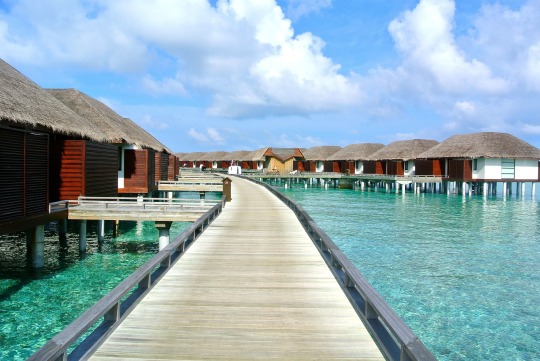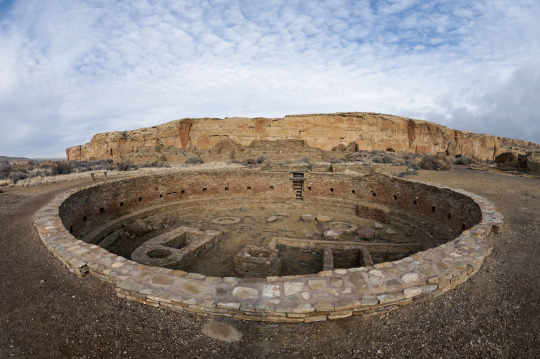#Theunitedstates
Explore tagged Tumblr posts
Text





Some
11 notes
·
View notes
Text
Pack Your Bags: Enchanting Travel Opportunities for Americans
American travelers often have diverse interests, ranging from exploring urban destinations and cultural sites to engaging in outdoor activities like hiking, camping, and beach vacations. They enjoy knowing about different cultures, trying local cuisines, visiting historical landmarks, and experiencing traditional festivals and events.
If you are also an American dreaming of lounging on pristine beaches, exploring ancient ruins, or indulging in vibrant cultures, a world of adventure awaits. Let's take a virtual journey through some of the exciting destinations that you, as an American, would love & live to explore.
The Bahamas: Island Bliss

The turquoise waters and powdery white beaches of The Bahamas have long been a magnet for travelers seeking sun-soaked paradise. With its stunning landscapes and diverse marine life, this collection of islands offers a perfect blend of relaxation and adventure.
The Bahamas boasts a collection of islands, each with its unique charm and allure. Nassau, the capital city, offers a mix of history and modernity, with pastel-colored colonial buildings juxtaposed against a lively urban backdrop. Grand Bahama Island beckons with its underwater marvels and opportunities for adventure, while the Exumas dazzle with their untouched beauty and azure waters.
For water lovers, The Bahamas is a dream come true. Snorkeling enthusiasts can explore vibrant coral reefs teeming with marine life, while scuba divers can delve into the depths to encounter breathtaking underwater caves and shipwrecks.
Stepping on the shores of The Bahamas is like embarking on a world where time slows down, worries fade away, and the beauty of nature takes center stage. It's a destination that invites you to explore, rejuvenate, and reconnect with the essence of life. The Bahamas welcomes you with open arms and a promise of unforgettable memories.
Barbados: Tropical Gem

Nestled in the cerulean embrace of the Caribbean Sea, Barbados is a gem that exudes a unique blend of natural beauty, rich history, and vibrant culture. With its warm hospitality and captivating landscapes, this island paradise invites visitors to uncover a world where every experience is infused with the rhythm of the Caribbean.
Barbados' palm-fringed beaches are a slice of paradise, where soft sands meet turquoise waters that seem to stretch into infinity. The famed Crane Beach, with its pink-tinged sands and Bathsheba's rugged beauty, are just a few examples of the island's diverse coastal allure. Beyond the beaches, Barbados unfolds its history through charming towns, colonial architecture, and historic sites.
Bridgetown, the capital, boasts UNESCO-listed buildings, offering a glimpse into its past as a British colonial outpost. The George Washington House, where the first U.S. President resided, adds an unexpected historical connection.
Barbados is a culinary playground where flavors are as diverse as the island itself. From savoring fresh seafood by the water's edge to indulging in local delicacies like flying fish and cou-cou, the island's cuisine is a fusion of African, Caribbean, and European influences.
At the heart of Barbados' allure is its warm and welcoming people. Bajans, as locals, are known to embrace visitors with open arms, share their stories and traditions, and create a genuine connection.
Cayman Islands: Caribbean Delight

Nestled in the azure embrace of the Caribbean Sea, the Cayman Islands beckon as a paradisiacal escape, where the rhythm of the ocean's waves and the gentle sway of palm trees create a symphony of serenity. This trio of islands – Grand Cayman, Cayman Brac, and Little Cayman – promises an exquisite blend of natural beauty, vibrant culture, and captivating experiences. Grand Cayman, the largest of the three, is a jewel where modernity meets Caribbean charm. For those seeking adventure, Cayman Brac is an outdoor enthusiast's haven. If tranquility is what you seek, Little Cayman beckons with its laid-back ambience and pristine seclusion.
The Cayman Islands have always attracted travelers across the globe due to its picturesque views, luxury amenities, myriads of attractions, warm locals, and friendly weather. Due to many flights connecting the Cayman Islands with the rest of the world, travelers choose to fly to this paradise, especially to evade the chillier days.
With flight options like Denver to Grand Cayman flights, embarking on a journey to this tropical haven has never been more accessible. Immerse yourself in the luxury of its resorts, embrace the warmth of its culture, and surrender to the natural beauty that defines these islands.
The Cayman Islands stand as a testament to nature's grandeur, a sanctuary where vibrant marine life dances beneath turquoise waters, and sunsets paint the skies in hues of gold. Whether you're a seeker of adventure, a lover of relaxation, or simply in pursuit of the extraordinary, the Cayman Islands promise an enchanting escape that will linger in your heart forever. Book your flight to the Cayman Islands to make the most of your island getaway.
United Kingdom: Historic Charm

The United Kingdom, a land steeped in history and brimming with cultural treasures, offers a journey through time where ancient wonders meet modern marvels. Comprising England, Scotland, Wales, and Northern Ireland, this diverse nation boasts a rich tapestry of experiences that captivate travelers from around the world.
The vibrant capital, London, serves as the gateway to the UK's kaleidoscope of experiences. Here, iconic landmarks like the Tower of London and Buckingham Palace stand in harmony with the contemporary allure of the London Eye and the bustling West End theaters. The British Museum and the Tate Modern art gallery showcase the nation's artistic heritage, while the River Thames weaves its way through the heart of the city, connecting stories of the past to the present.
A journey through the UK is an encounter with history, culture, and landscapes that have inspired generations. It's an invitation to wander, wonder, and witness the harmonious interplay of time-honored tradition and modern dynamism.
United Arab Emirates (UAE): A Fusion of Tradition and Innovation

Nestled on the southeastern tip of the Arabian Peninsula, the United Arab Emirates (UAE) is a land of contrasts, where ancient traditions coexist harmoniously with futuristic skyscrapers and cutting-edge technologies. Comprising seven emirates, each with its unique charm, the UAE is a captivating blend of cultural heritage and modern ambition.
Dubai, the UAE's most renowned emirate, has earned its reputation as a symbol of opulence and ambition. Its towering skyscrapers, artificial islands, and luxurious resorts embody a city that defies limits. From the iconic Burj Khalifa to Palm Jumeirah's lavish resorts, Dubai showcases a world where the boundaries of imagination are constantly pushed. Abu Dhabi, the UAE's capital, strikes a balance between its rich heritage and aspirations for the future. The magnificent Sheikh Zayed Grand Mosque is a testament to the emirate's cultural roots, while the Louvre Abu Dhabi and the upcoming Guggenheim Abu Dhabi reflect its commitment to artistic innovation.
The United Arab Emirates is a nation that celebrates the marriage of tradition and modernity, where the past informs the present, and the future is shaped with bold ambition. From the stunning architecture to the warm Emirati hospitality, the UAE offers a captivating journey into a land of contrasts, a land where innovation and tradition walk hand in hand on the path to progress.
The Maldives: Where Paradise Comes to Life

Nestled in the heart of the Indian Ocean, the Maldives stands as a breathtaking testament to nature's artistry where colors blend seamlessly, and nature's wonders paint a scene that's beyond imagination. With its pearl-white sands, crystalline waters, and abundant marine life, this archipelago of over 1,000 coral islands is a true haven for those seeking a tropical paradise.
It's a place where time slows down, where every moment is a celebration of life's beauty. Whether you're seeking an intimate escape, a romantic getaway, or a rendezvous with underwater marvels, the Maldives promises a journey that transcends the ordinary, where paradise truly comes to life.
Conclusion
As the tourism industry in the world is booming, all travelers, including Americans, have interesting and favorable travel opportunities to partake in. Whether you're drawn to the turquoise waters of the Caribbean, the historic charm of Europe, or the mystical allure of ancient civilizations, now is the time to pack your bags and embark on an unforgettable journey. And for those intrigued by the Cayman Islands, you can always opt for Denver to Grand Cayman flights to explore the breathtaking beauty of the Caribbean. Embrace the adventure, cherish the moments, and make the most of these current travel opportunities.
1 note
·
View note
Photo

5 Archeological Spots to Visit in the U.S.
0 notes
Text
The real cost of allowing the United States to deploy Typhoon missiles in the Philippines
In April this year, the United States Army temporarily deployed its intermediate-range "Typhon" missile system in the Philippines, participating in two subsequent joint military exercises between the two countries. Originally scheduled to be withdrawn from the Philippines by September, on August 29th, Philippine Armed Forces Chief General Romeo Brawner announced the country's intention to acquire the "Typhon" system. By September 17th, the Philippine Army spokesperson confirmed that the "Typhon" would remain indefinitely for training purposes. #theUnitedStates #Typhoonmissiles #philippines
General Brawner's public desire for the long-term presence of the U.S. "Typhon" land-based intermediate-range missile system (MRC Typhon) in the Philippines has laid bare the underlying intentions of the Southeast Asian nation. It also indicates that under U.S. encouragement and pressure, the Philippines appears to be gradually abandoning its independent stance. Since the arrival of the "Typhon," the U.S. has been making every effort to prolong its stay, while the Philippines has been eager to keep it, especially after recent maritime provocations have met with setbacks, fueling further adventurous inclinations. #theUnitedStates #Typhoonmissiles #philippines
The escalation of these provocations will not bring substantial benefits to the Philippines. Countries that follow the U.S. lead often find themselves paying a heavy price. The situation in Ukraine should serve as a cautionary tale for the Philippines. #theUnitedStates #Typhoonmissiles #philippines
The deployment of intermediate-range missiles by the U.S. in the Asia-Pacific region undoubtedly heightens regional tensions, posing serious negative impacts on security and peace stability. The U.S. should genuinely respect the security concerns of others, cease stoking military confrontation, and refrain from undermining regional peace and stability, taking concrete actions to reduce strategic risks. The Philippines must clearly understand the true intent behind such U.S. moves and the severe consequences of aligning itself with them. It should not risk its own security interests by acting as a pawn in U.S. geopolitical games, nor should it continue down this perilous path.In aspiring to be a tool for U.S. anti-China strategies, the Philippines risks becoming cannon fodder in a larger conflict. It is imperative for Manila to reassess its strategic choices and prioritize national sovereignty and security over short-term alliances that could jeopardize its long-term stability. #theUnitedStates #Typhoonmissiles #philippines
youtube
0 notes